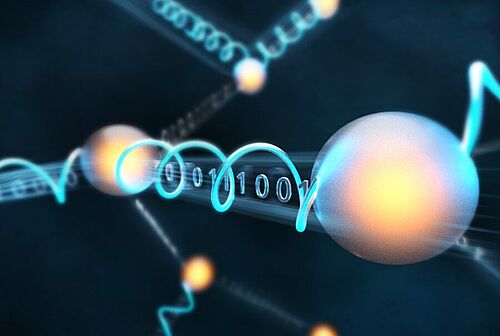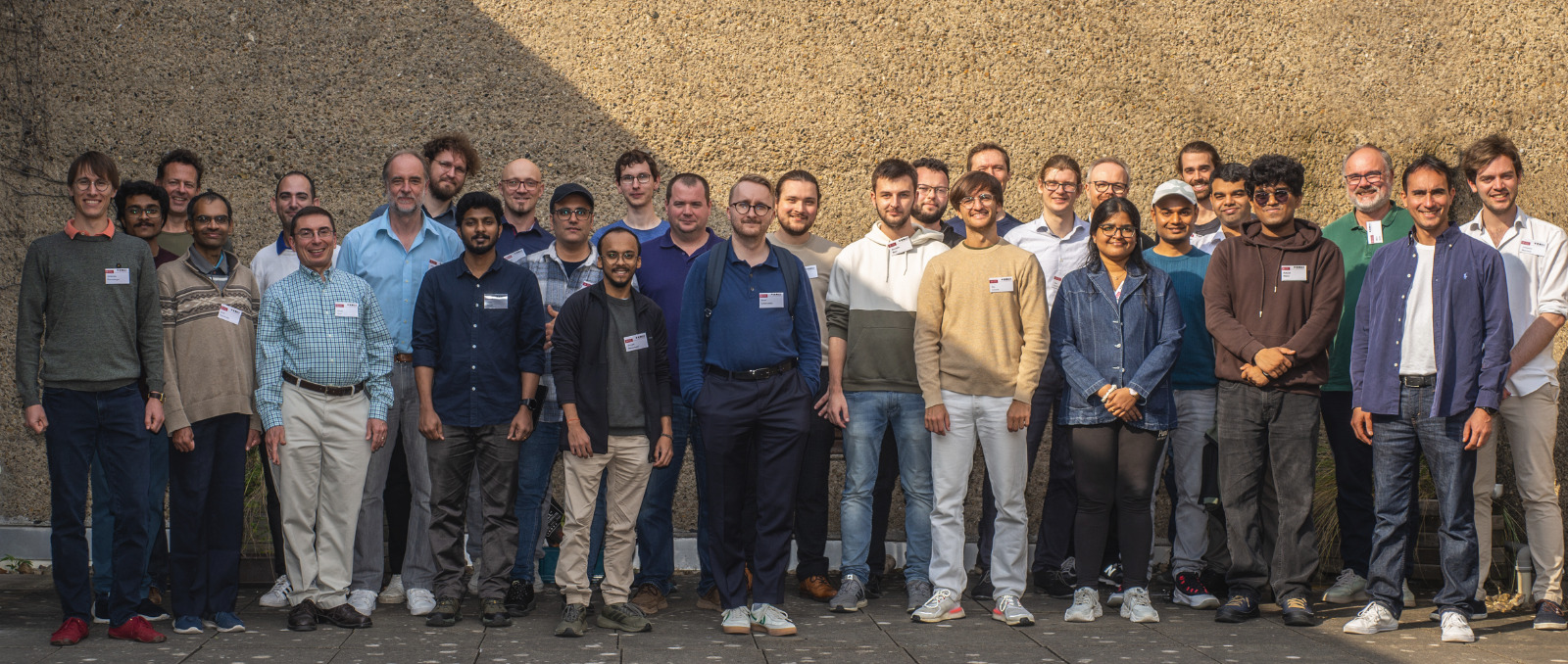
We were pleased to host the fourth workshop on Entanglement Assisted Communication Networks (EACN). The workshop took place from September 18 to 20, 2024 at the TU Braunschweig.
Topics: Shared entanglement is widely acknowledged as the key enabler to future quantum information processing tasks. Yet, from a technological perspective, it has remained largely unclear how exactly one should approach the transfer from ideas and laboratory experiments to actual technology. In particular this is true for the domain of quantum communication. To find answers to multidisciplinary questions connecting theory, experiment and network design, this interdisciplinary workshop focusses on entanglement as a resource assisting classical communication systems, covering topics such as Quantum Memory, Quantum Simulators, Establish Entanglement and Quantum Security. We welcomed participants from academic institutions, research labs and industry. Selected approaches to entanglement-assisted communication were presented, along with established communication models in classical networking.

Wednesday, September 18:
9:00 - 10:00 — Fei Ding - Niedersachsen Quantum Link: Towards a large-scale quantum network with deterministic quantum light sources
10:00 - 10:30 — Coffee Break
10:30 - 11:15 — Julian Struck - Satellite-Based Quantum Communication: The Long Road From Fundamental Research To Commercial Application
11:15 - 12:00 — Gregor Pieplow - Creating spin-photon entanglement with group four color centers in diamond
12:00 -12:30 — Karol Łukanowski - DIQKD vs OKD: the many flavors of physical layer security
12:30 -14:00 — Lunch
14:00 — Christian Bertoni - Typical thermalization of low-entanglement states
14:30 — Lightening talks for Poster and Demos (90 seconds):
15:00 — Coffee Break
15:20 — Group Photo
15:30 — Poster Session with BBQ (starting around 19:00)
Thursday, September 19:
9:00 — Andreas Winter - Entanglement Assisted Communication
10:00 — Coffee Break
10:30 — Meir Lederman - Secure Communication with Unreliable Entanglement Assistance
11:00 — Johannes Moerland - Bound entangled Bell diagonal states of unequal local dimensions, and their witnesses
11:30 — Arun Padakandla - Simulation of Separable Measurements on Distributed Bipartite States via Likelihood POVMs
12:00 — Lunch
13:20 — Walk mensa to bus
14:00-17:00 — Lab-Tour
Friday, September 20:
9:00 — Moritz Wiese - Discussion of Security Metrics & Implementation
9:45 — Karolin Varner - Computational Authenticated Key Distribution - Encryption, the Old-Fashioned Way
10:15 — Nilesh Kumar - Discussion on QKD
10:45 — Coffee
11:15 — Paul Spooren - QKD with PQC - harder, simpler, faster, cheaper
11:45 — Marc Geitz - Update on Quantum Security at Deutsche Telekom
12:15 — Lunch
13:30 — Ángeles Vazquez-Castro - Integrating Crypto-Agility with Physical Layer Security
14:00 — Nilesh Kumar - Quantum PUF: Unlocking Security Through Information-Theoretic Insights
14:30 — Dan Kilper - QKD Networks in the CoQREATE Project
15:00 — Podiums Discusssion: Quantum Security (all speakers of Friday)
16:00 — Goodbye
The organizers acknowledge funding by the DFG via grants NO 1129/2-1 and NO 1129/4-1 and the NSTC as well as by the Bundesministerium für Bildung und Forschung in the programme of “Souverän. Digital. Vernetzt.”. Joint project 6G-life, project identification numbers: 16KISK002 and 16KISK001K, and via the q-net-q project (16KISK168).